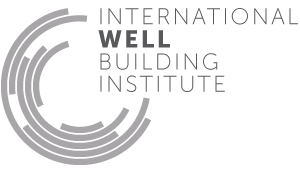Workplace family support
- 84 Health and wellness awareness
- 85 Integrative design
- 86 Post-occupancy surveys
- 87 Beauty and design I
- 88 Biophilia I - qualitative
- 89 Adaptable spaces
- 90 Healthy sleep policy
- 91 Business travel
- 92 Building health policy
- 93 Workplace family support
- 94 Self-monitoring
- 95 Stress and addiction treatment
- 96 Altruism
- 97 Material transparency
- 98 Organizational transparency
- 99 Beauty and design II
- 100 Biophilia II - quantitative
- P5 Health through housing equity
- P6 Education space provisions
93. Workplace family support
To ensure occupants are able to properly care for themselves and their families by adopting supportive family care policies.
Work-life balance can often be overlooked and personal lives neglected to work responsibilities. Family care policies ensure that employees are able to take the necessary time off for self-care and balance their work and personal lives in a healthy manner. Research shows that employees with extensive time-flexible policies report lower stress levels.
Employers provide the following:
Employers provide at least one of the following:
Employers provide the following:

Applicability Matrix
| Core & Shell | New & Existing Buildings | New & Existing Interiors | |
|---|---|---|---|
| Part 1: Parental Leave | - | O | O |
| Part 2: Employer Supported Child Care | - | O | O |
| Part 3: Family Support | - | O | O |
| Commercial Kitchen | Education | Multifamily Residential | Restaurant | Retail | |
|---|---|---|---|---|---|
| Part 1: Parental Leave | - | O | - | O | O |
| Part 2: Employer Supported Child Care | - | O | - | O | O |
| Part 3: Family Support | - | O | - | O | O |
Verification Methods Matrix
| Letters of Assurance | Annotated Documents | On-Site Checks | |
|---|---|---|---|
|
PART 1 (Organizational Protocol) Parental Leave |
Policy Document | ||
|
PART 2 (Organizational Protocol) Employer Supported Child Care |
Policy Document | ||
|
PART 3 (Organizational Protocol) Family Support |
Policy Document |
| 93.1.b |
US federal law entitles eligible employees to up to 12 workweeks of leave during any 12-month period for reasons listed in § 2612(a)(1), including the birth of a child, or placement of a child with the employee for adoption or foster care. |
| 93.3.a |
United States federal law permits eligible employees to receive up to 12 workweeks of leave during any 12-month period for an employee to care for a spouse, child or parent with a serious health condition. |
| 93.3.b |
The National Partnership for Women and Families' Expecting Better recognizes US states that allow workers to use their earned paid sick days to care for either a new child or an ill family member. |
| 93.3.c |
The National Partnership for Women and Families' "Expecting Better" recognizes US states that improve upon federal law by "providing all nursing mothers with reasonable break times and/or a place other than a bathroom to express breast milk at work." |
| 93.2.a |
Sloan Work and Family Research Network's "Why is Employer-Supported Child Care an Important Business Issue" states that on-site childcare centers increase loyalty to an organization and reduce commuting time for employees. |
| 93.2.b |
Sloan Work and Family Research Network's "Why is Employer-Supported Child Care an Important Business Issue" notes that subsidies and vouchers provide tax credits for employers and lower employees' personal financial expenses. |
| 93.1.a |
A 2015 Presidential Memorandum from the White House directs federal agencies to ensure employee policies offering 240 hours (equivalent to 6 workweeks) of advanced (i.e., paid) sick leave for appropriate uses, including the birth or adoption of a child. |
